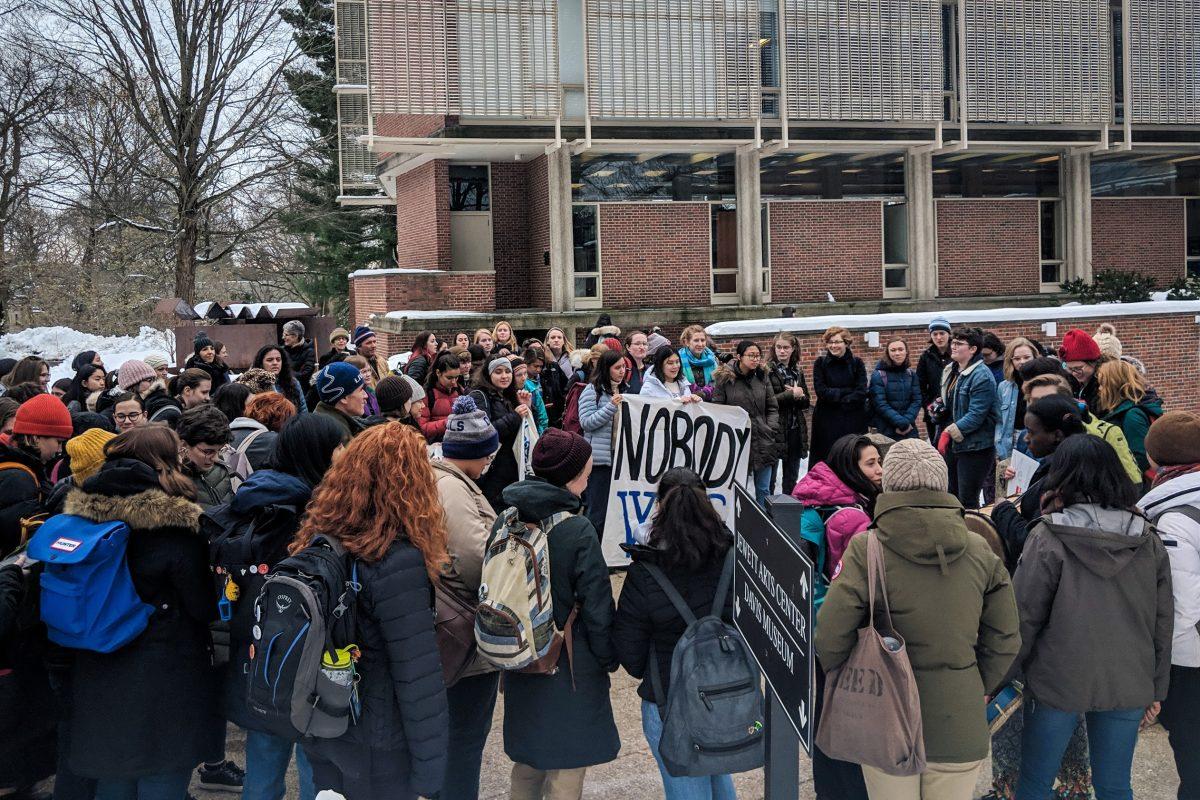On Friday December 6, approximately 50 students, faculty and staff gathered on the Jewett steps to protest the school’s investment in fossil fuels. Additionally, due to targeted outreach on behalf of student organizers, a handful of faculty members hung banners from their windows in support.
During the event, students and faculty shared short statements and poems regarding the necessity of disinvestment and consequences of climate change, and organizers led the group in chant and song. Among those in attendance was College President Paula Johnson, who described it as “very moving.” While the organizers initially planned to present the petition, which had garnered 650 signatures, to President Johnson in her Green Hall office following the event, her arrival prompted the group to give it to her during the rally.
President Johnson announced to the crowd that the Board of Trustees will take up the issue at their next board meeting, slated to occur in early February. She referenced a schoolwide email Chief Investment Officer Debby Kuentstner sent a week before as indication of the school’s support for a discussion regarding divestment. The email requested that students, faculty and other community members submit any plans that they had for divestment to the Subcommittee on Investment Responsibility (SIR) of the Board of Trustees. Currently, Renew Wellesley is submitting a platform, as well as a group of concerned faculty led primarily by Environmental Studies faculty members. If either of these proposals are successful, SIR may recommend fossil fuel divestment to the full Board of Trustees. Schools such as the University of California system and Smith College have already pledged to divest.
“This has been an issue that has been on our agenda before the petition,” Johnson said. “And it’ll be an important moment for that subcommittee and the board to hear from students, faculty, and other members of the community, to help enrich our understanding of the community’s view, and as we dive deeply into the data and move forward together as a community.”
The protest occurred about a week after the school released a new policy on demonstration and free expression and followed on the heels of a similar demonstration at the annual Yale-Harvard football game. The organizers had been initially reluctant to follow the notification procedure because of a shared belief that such a policy should not exist in the first place, according to Claire Hayhow ’21, a member of Renew Wellesley and EnAct. But due to concern over police presence, which has been significant during the past rallies, the group reached out to Dean Horton exactly 48 hours before the event. According to Hayhow, the group was able to negotiate with the Dean and prevent police from attending.
Moving forward, Renew Wellesley announced it would continue its efforts in the spring semester and expressed a willingness to testify in front of the Board of Trustees in order to further their cause.
“I think it was very successful,” Hayhow said. “I was so happy to see all of the people that showed up. We had no idea that so many people would be here.”






